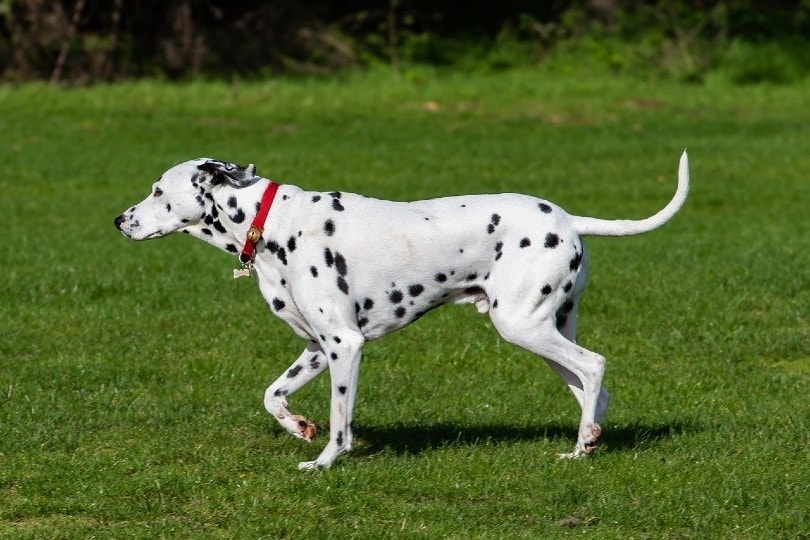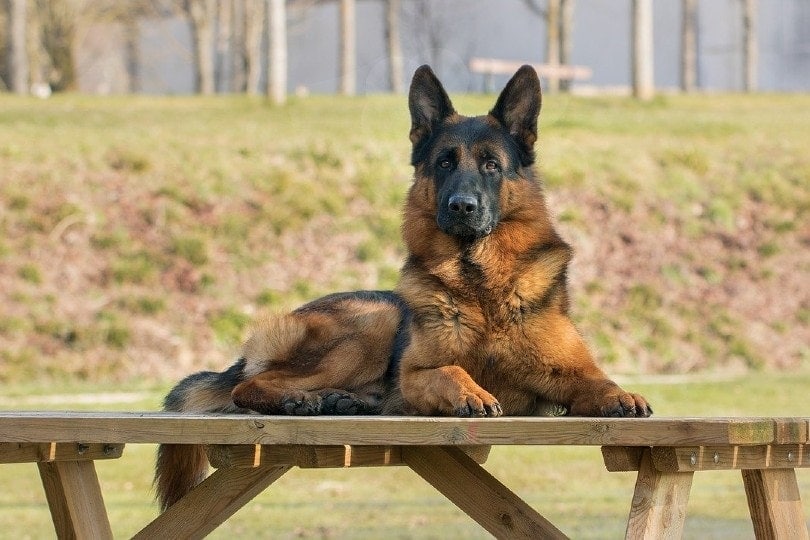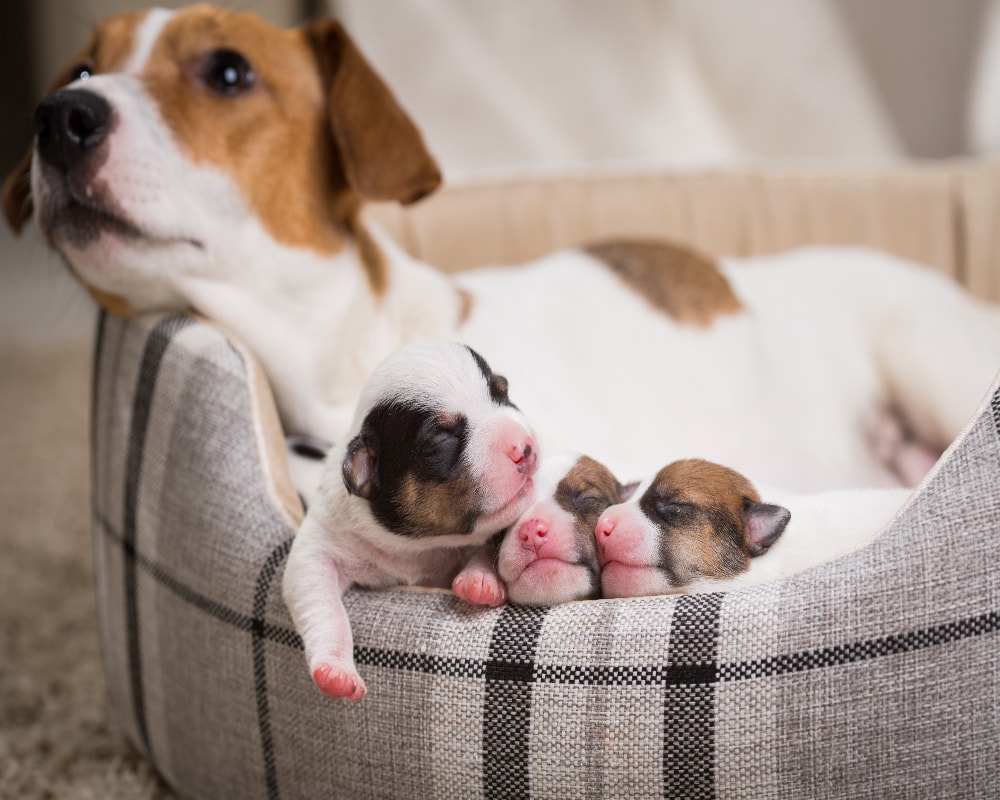Male vs Female Basset Hound: Main Differences Explained
Updated on
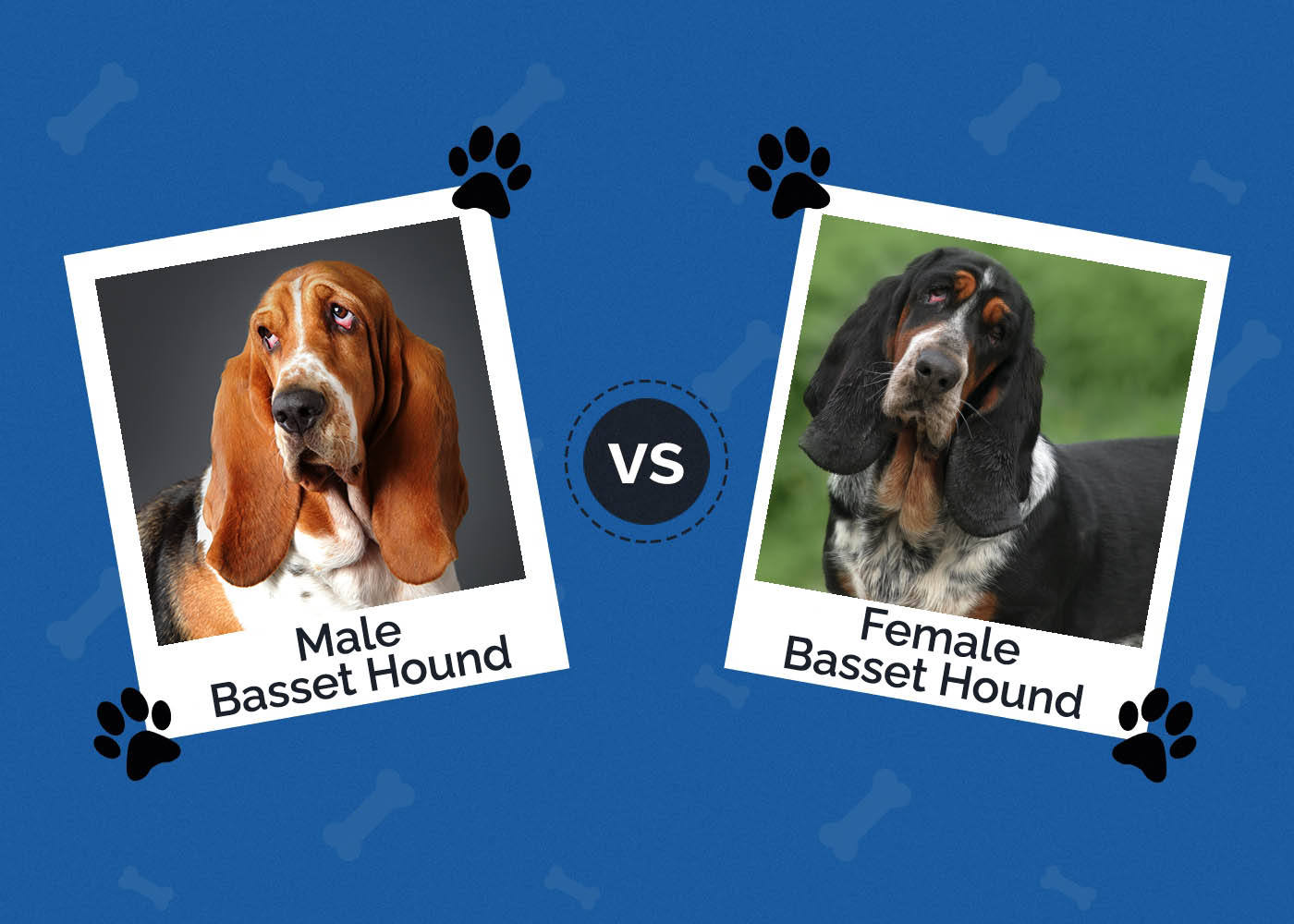
Click to Skip Ahead
You’ve heard the phrase women are from Venus and men are from Mars used to describe the differences between the sexes, right? Did you ever imagine these differences would make their way into the dog world? When choosing a new dog, more and more people are asking which gender is better, male or female. For some dog breeds, the differences are major, but what about the wrinkled, bellowing, slow-trotting Basset Hound? Is there truly a better gender when it comes to these beloved pups? Let’s take a look and find out!
Visual Differences
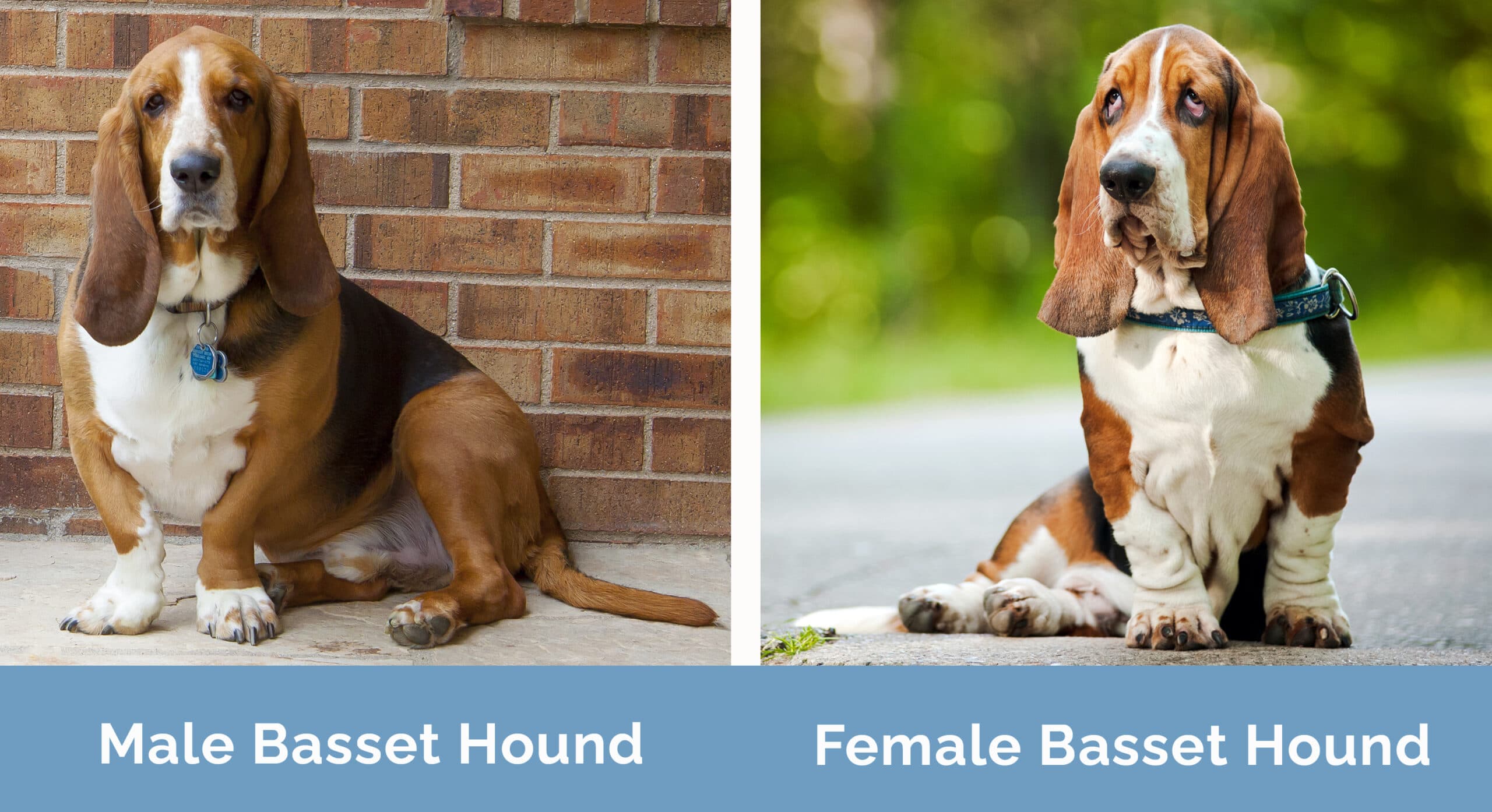
At a Glance
- Average height (adult): 12–15 inches
- Average weight (adult): 55–80 pounds
- Average height (adult): 11–13 inches
- Average weight (adult): 40–55 pounds
Basset Hound 101
The Basset Hound is a beloved breed with a droopy expression and cute wrinkles that pet owners adore. Known for their keen noses and adorable noises, these hounds are great to have as part of a home. They are charming, comical, and gentle with all members of the household. Originating in France, the Basset Hound became famous for its nose. When it comes to scent work, this breed is second only to the Bloodhound. Once widely used for hunting hares and rabbits, these dogs were favored by hunters due to their slow gait making them much easier to track. Once this breed made its way to the United States, it didn’t take long before these hardy dogs found themselves as family pets instead of hunting partners.
Male Basset Hound Overview
Personality / Character
As pups, male Basset Hounds are known to be more on the clingy side. They enjoy the attention and being with their owners. When social activities are going on, don’t be surprised if they are there. This center-of-attention attitude flows into the area of play as well. Males are more apt to play and be active making them great with children. You’ll also find that their love of activity helps keep the unwanted weight off. With a more loving personality, you may think males are the weaker or less dominant of the breed. This isn’t the case. Just like most dogs, male Basset Hounds will show their dominance if they are threatened or overly aggravated.
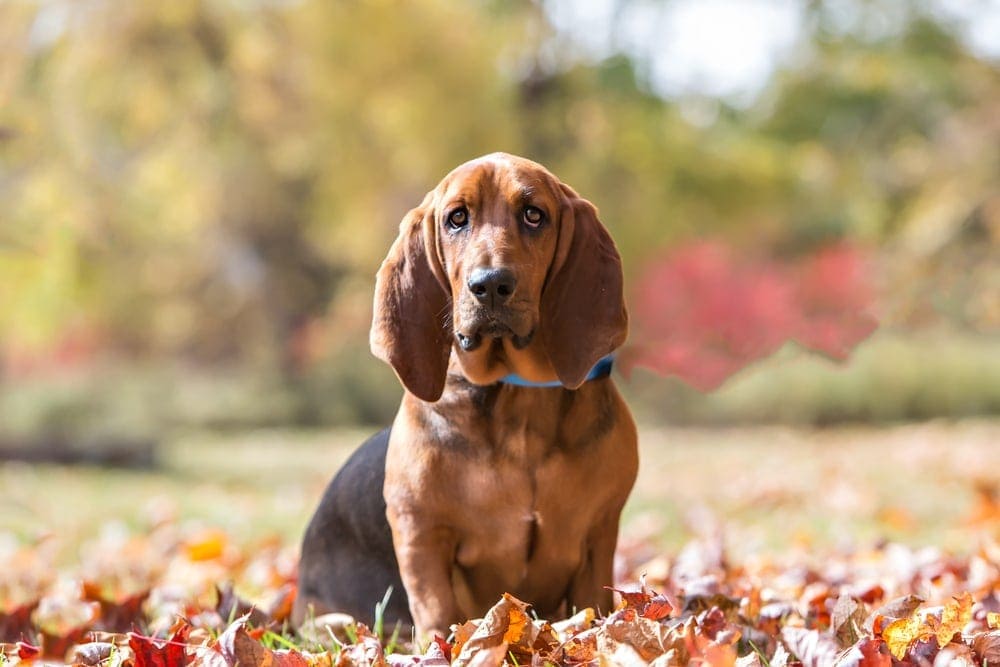
Training
With such playful personalities and short attention spans, it’s understandable why male Basset Hounds can be difficult to train. Instead of struggling to keep your dog on track when training, make it a fun experience for them. If your male Basset feels that training is exciting, they’ll be more apt to take part. You’ll also find that positive reinforcement is a must. If you show aggression or anger, these sensitive dogs may lose all trust in you and training will not be the same after that. While these dogs respond well to treats, be mindful of how much they receive due to their weight issues.
Health & Care
While both male and female Basset Hounds are prone to certain health issues due to heredity, males can suffer from particular ailments more often. At the top of this list would be separation anxiety and osteochondritis dissecans. Severe cases of either of these in a male Basset should be addressed with their veterinarian for proper treatment. Ear infections are another issue males suffer from more often than females. Male Bassets are normally larger than the ladies. This larger size can translate into longer, floppier ears. Make sure you clean their ears often to help avoid this painful issue.
Both male and female Basset Hounds tend to suffer from these issues:
- Dilated cardiomyopathy
- Knee and hip dysplasia
- Patellar luxation
- Hypothyroidism
- Bleeding disorders
- Glaucoma
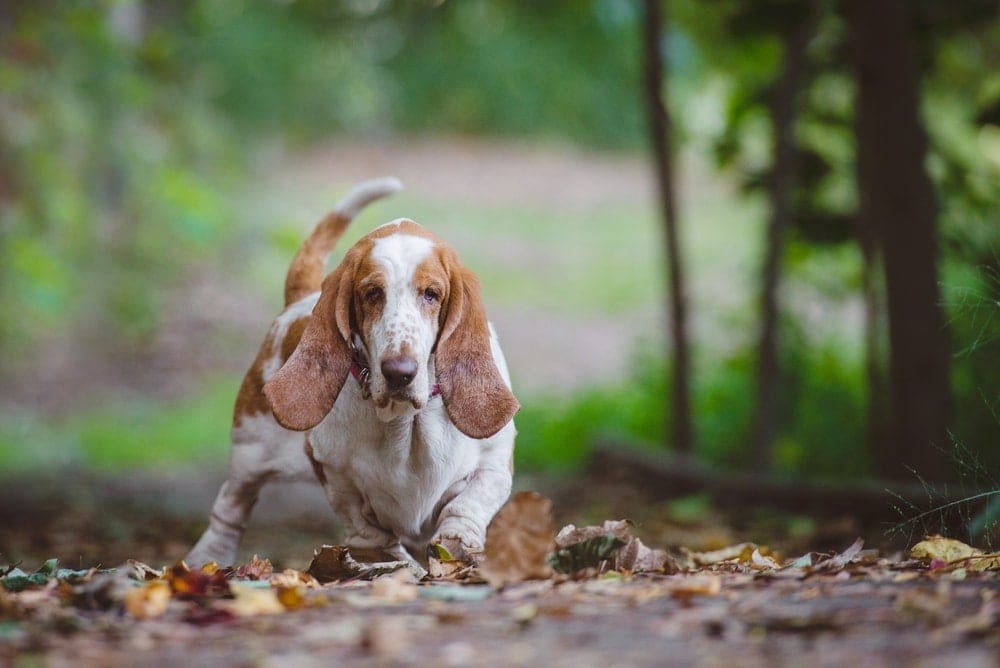
Breeding
It’s important to know that any intact male dog is more likely to show aggression or dominance when a female is present. You can easily avoid this by having your male Basset Hound neutered at a young age. If you decide breeding is in your dog’s future they should be tested for any possible ailments or defects. You will also need proof that your male is proven and titled.
- Great personality
- Loves being social
- Playful and active
- Can be easily trained if sessions are attention-getting
- More likely to suffer from separation anxiety and osteochondritis dissecans
- Tends to show dominant tendencies
Female Basset Hound Overview
Personality / Character
Female Basset Hounds can be sassy little ladies when they are pups. They enjoy playing boss, but that doesn’t mean you’ll never see them playing. As they age, this bossiness levels a bit and turns into a more independent personality. These ladies have a take-it-or-leave-it attitude. While they enjoy time with their families and playing, they are just as content when they are alone. You’ll also find that female Bassets are more protective of their owners and especially the children in their families. This type of protective attitude is more noticeable during a heat cycle, pregnancy, or when she is nursing pups.
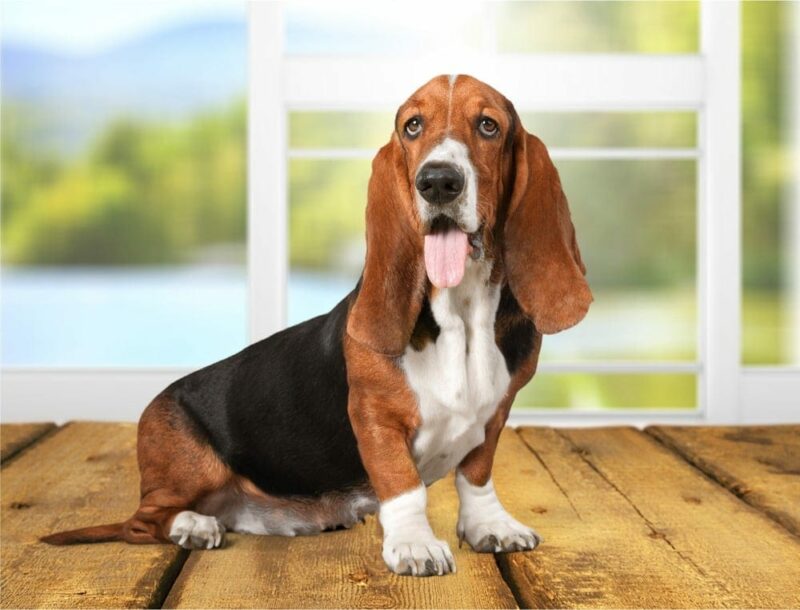
Training
While female Bassets have a better attention span than males, that doesn’t mean training is any easier. With their independence also comes a stubborn streak. Female Bassets are more likely to ignore and disobey their owners during training. If this is the case, grabbing their attention is a must. Luckily, thanks to their better attention span, once you have their attention on you, they should pick up well to what you’re teaching them. You’ll also find that starting training early with females is the best plan. They do much better with their attitude at younger ages.
Health & Care
Female Basset Hounds are just as likely as males to contract the medical issues we listed above. As female dogs, however, you’ll find they have other issues normally reserved for their sex.
- Mammary cancer
- Ovarian cancer
- Pyometra
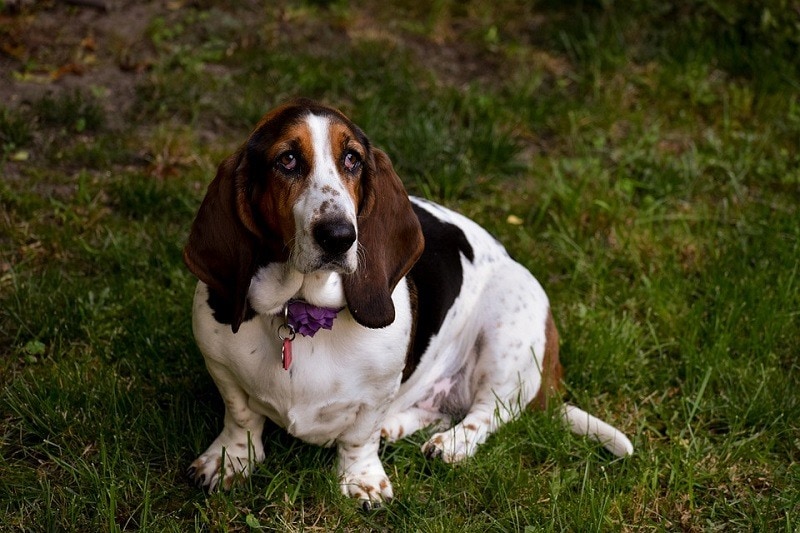
Breeding
Before you breed a female Basset, genetic testing should be done just like with males. Unfortunately, female Bassets are also prone to delivery issues which may require an emergency C-section when giving birth. This is due to their stocky build and short legs. This can also be a greater threat for obese moms ready to give birth.
- Easy to train when done early
- Independent and does well alone
- Protective
- Reproduction issues are common
- Independent nature could be off-putting for some
Which Gender Is Right For You?
When it comes to Basset Hounds, either gender makes a great pet. If you have a family with kids that want to play and be active, you may find yourself leaning more toward a male Basset Hound. By providing a fun training experience with positive reinforcement, these wrinkly gentlemen can easily become the perfect companion. For those who want a more protective, independent pet, the lady Bassets are ideal. If you start training young, there should be very few issues when it comes to gaining their attention. In all honesty, there is no wrong choice with this dog breed which makes Basset Hounds even more lovable.
Featured Image Credit: (L) Monica Martinez Do-Allo, Shutterstock | (R) tsik, Shutterstock




